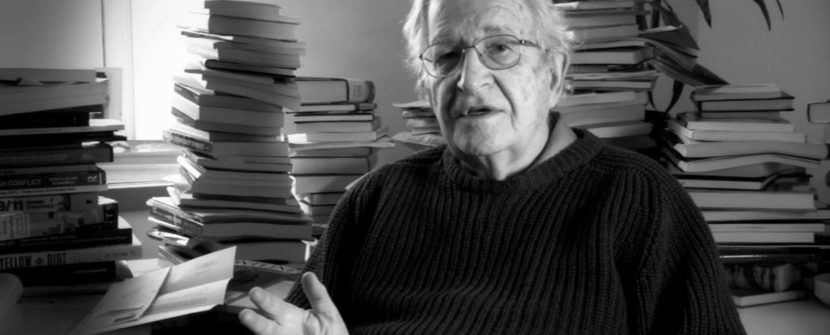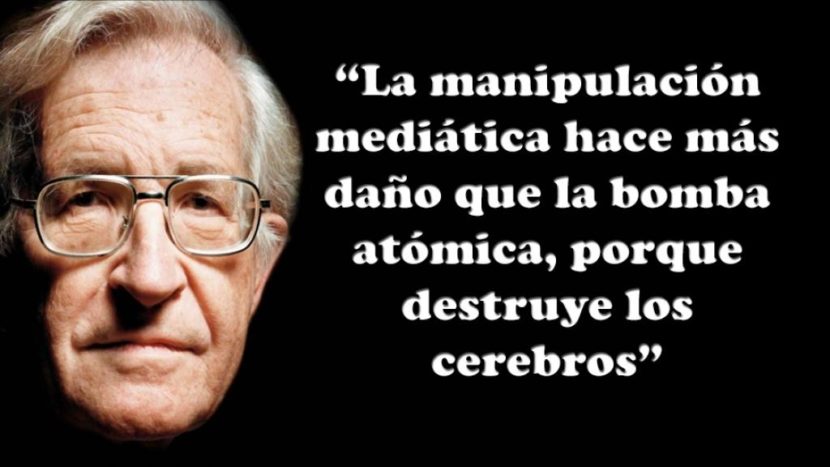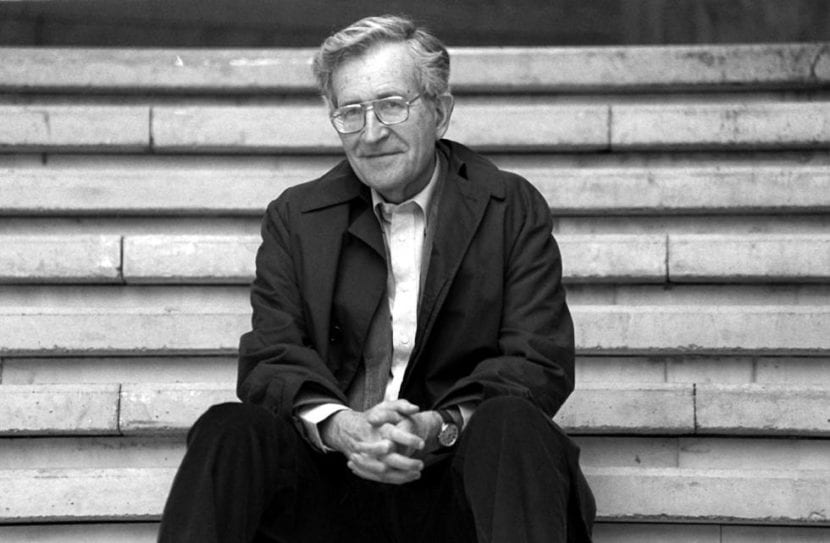
The writer Noam Chomsky with his books.
"Noam Chomsky Books" is a common search on the web by linguistics lovers. This is not in vain, the author is considered one of the most important linguists in the world, his literary works on language and cognitive science have had a great global impact.
Not knowing who is noam chomsky today, it is losing sight of the trace of a magnanimous work. The American writer, linguist, and philosopher was born on December 7, 1928. He is considered one of the most important intellectuals of the XNUMXth and XNUMXst centuries. Chomsky's essays and other publications have earned him several recognitions in various parts of the world.. He taught at the Massachusetts Institute of Technology (MIT) and there he consolidated his theory of generative grammar, whose fundamental basis is the syntax of sentences. In politics, he is part of the Industrial Workers of the World union, a supporter of anarcho-syndicalism and libertarian socialism.
Youth and studies
Chomsky was born in Philadelphia, Pennsylvania, United States; his parents were a couple of Ukrainian immigrants of Jewish religion. His father William "Zev" Chomsky and his mother Elsie Simonofsky were scholars of the grammar of the Hebrew language.
Noam's family was middle class and part of his childhood was lived in Philadelphia and New York. In these places the young man witnessed injustices and abuse of power against the people around him, which is why from an early age he was part of talks on social rights and politics.
He studied elementary school at Oak Lane Country Day School and in 1945 he graduated from the 184th class of Central High School., being one of the most notable students. During those years he wrote an essay on the Spanish Civil War and fascism that was witnessed in Europe after it was terminated.
From 1945 to 1949 he studied at the University of Pennsylvania and his greatest influence was Professor Zellis Harris. In the year of his graduation, Noam Chomsky married Carol Schatz, who became his life partner.
Contributions to linguistics
Shortly after graduation, he began teaching at MIT on the recommendation of a friend of his. He started out as an assistant professor and was quickly promoted, he taught linguistics and grammar to undergraduate and graduate students.
In 1957 he published his first work entitled Syntactic Structures, where he expressed his ideas on linguistics. His theory was based on unifying the grammar of different languages and making it universal. In April of that same year, their daughter Aviva was born, who became an academic and activist.
In 1960 their daughter Diane was born and in 1965 published Aspects of Syntax Theory, a book where he wrote about generative and universal grammar. Chomsky expresses that the syntax of a sentence can change infinitely many times, without diminishing its meaning. Two years later their son Harry was born.
In 1972 he published Syntactics and Semantics in Generative Grammar, in this publication, he continued his theory that syntactics overlap with semantics. He did not seek to determine a single or correct formulation of the sentences, but rather from a power to generate the greatest number of interpretations.
Chomsky in politics
The author's political ideas are based on the philosophy of libertarian socialism, which goes against totalitarian governments, wage slavery and rejects state interference. It affirms the possibility of a democratic society built through public and citizen assemblies.

Noam Chomsky quote.
The author has protested against the United States government, affirms that the protection of the peace has been used as a strategy to argue armed attacks. For Chomsky, state ideologies are promoted through the patriotism that these scenarios promote.
In 2006 he published Failed states. The abuse of power and the attack on democracy, where he analyzed how the US has joined the problems of other nations. Two years later his wife Carol, who suffered from cancer, passed away.
Noam today
At the beginning of his career, the author consolidated his theories on grammar and linguistics. For Chomsky, the human mind has innate knowledge about communication and language, these have influence or can change depending on the context in which they develop.
In recent years the author has focused on making his world view known and actively participating in politics, has criticized several governments in Latin America and commented on the Venezuelan crisis. Noam has a website where you can access material about his life and work.
Noam Chomsky Books
Here are excerpts from some of Chomsky's work on politics and linguistics:
Who rules the world?
"The pattern of reward and punishment is repeated throughout history: those who place themselves in the service of the state are often praised by the general intellectual community, while those who refuse to align themselves in the service of the state are punished."
Necessary Illusions: Thought Control in Democratic Societies
“It is worth emphasizing that there is much more at stake here than negligence, incompetence or service to power. The protection afforded to state terrorists in "fledgling democracies" provides a veil behind which they can engage in their atrocities, with essential US support, as well as focusing outraged attention on the terrorists. Nicaraguan abuses, by far less, have facilitated Reagan's programs of terror and economic warfare. "
Let's talk about terrorism
“You have to understand the American elections within their real context, the United States is indeed, in many respects, a free and open society. The resources of violence that the State can use are relatively limited, there are many privileged people and thus, to a certain extent, we can speak of an open society.

Noam Chomsky.
“… In the United States there is no party politics such as there would be in an acceptable democracy. This is the reason why almost half of the population does not vote ”.
Some awards and distinctions
- Guggenheim Scholarship in Humanities, United States and Canada (1971).
- Kyoto Prize in Basic Sciences (1988).
- Benjamin Franklin Medal in Cognitive and Computing Sciences (1999).
- Sydney Peace Prize (2011)
- Award Frontiers of Knowledge in Humanities and Social Sciences (2019).